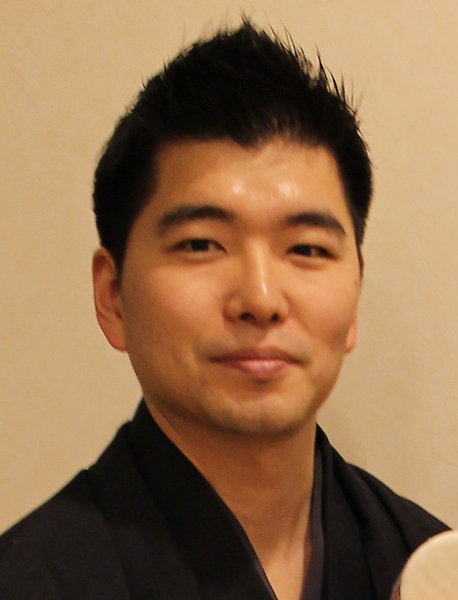[Seminar] "Photosynthetic cellular modifications to synthesize spider silk with arranged amino acid sequences" by Prof. Keiji Numata (Kyoto University and RIKEN, Japan)
Title: Photosynthetic cellular modifications to synthesize spider silk with arranged amino acid sequences
Abstract:
Structural protein is one of the key factors to realize the unique properties and functions of natural tissues and organisms. However, use of structural proteins as structural materials in human life is still challenging. One of the major drawbacks of protein/polypeptide-based materials is their limited synthesis/process method. My research group has successfully synthesized various polypeptides, such as spider silk protein-like and elastin-like multiblock polypeptides, even with unnatural amino acids or nylon units, via chemoenzymatic polymerization. Those artificial polypeptides containing unnatural units achieve several properties that cannot be done by natural polypeptides. These synthetic polypeptides with nylon units are highly biodegradable and less environmentally toxic. Thus, this enzyme-mediated polymerization of amino acid monomers provides a new insight for material design of polypeptide.
Further, my research group is interested in marine purple photosynthetic bacteria as ideal organisms and platforms for production of useful materials to reduce production costs and to contribute sustainable society, because they can utilize sun energy, seawater and carbon dioxide and nitrogen gas in the air for their growth. My research group studies on the photosynthetic bacteria to produce spider silk-like polymers. Rhodovulum sulfidophilum, a marine purple non-sulfur photosynthetic bacterium, was genetically engineered for the production of synthetic spider dragline silk protein. The successful construction of photosynthetic microbial host for silk production could reduce the production cost, especially the marine photosynthetic bacteria can fix CO2 and N2 with using seawater as a cheap culture medium. To establish the fundamental platforms for photosynthetic bacterial technology, we are currently developing peptide-mediated transformation and protein introduction methods, namely, “peptide method”, for alga, photosynthetic bacteria, plants. These new methodologies will be able to support the high-throughput characterizations for biopolymer productions from CO2.
My research group also reported the new finding in spider silk spinning, which is essential to clear the hierarchical structure of spider silk. The scalable and sustainable synthesis method along the clarified structure-function relationship of natural proteins provides a new insight for structural and functional material design of amino acids-based polymers.
Figure. Sustainable biopolymer design and biosynthesis based on spider silk spinning and its amino acid sequences.
Related reviews
1. K. Numata. Biopolymer science for proteins and peptides. Elsevier, 2021.
2. A.D. Malay, H.Craig, J. Chen, N. A. Oktaviani, K. Numata. Biomacromolecules. 23, 5, 1827–1840, 2022.
3. P. Srisawat, M. Higuchi-Takeuchi, K. Numata. Polymer Journal, 54, 1139–1151, 2022.
4. K. Watanabe, M. Odahara, T. Miyamoto, K. Numata. ACS Biomater. Sci. Eng. 7(6), 2246–2254, 2021.
★Ten participants at L4E48 will receive a novelty by L-INSIGHT. (first-come-first-served basis)





